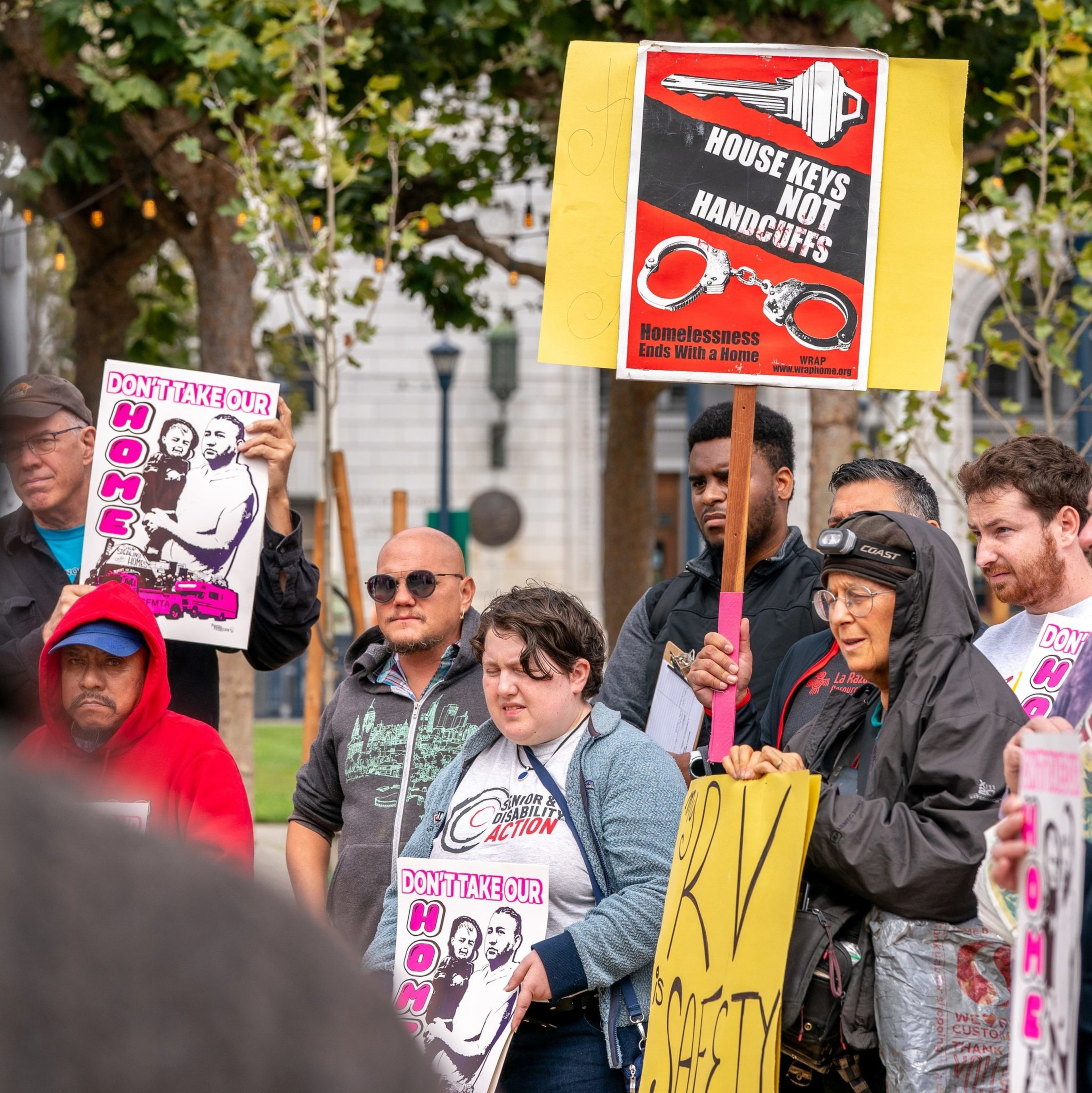On the night of July 29, the owners of about 30 RVs, ousted from the street they’d parked on for years, drove onto a San Francisco Zoo parking lot in protest. Park rangers and police officers showed up at the site along the Great Highway Extension and told them they were trespassing. No one was cited or detained, and the caravan left the lot in the early hours of the morning. Most of the RVs ended up parking on Zoo Road.
The next day, Melissa Millsaps, an investigator with the city attorney’s Public Integrity Unit, visited the Pomeroy Recreation & Rehabilitation Center on Zoo Road seeking security-camera footage of the incident, according to the center’s chief, David Dubinsky. The Public Integrity Unit is charged with everything from code enforcement to whistleblower investigations.
“I think what they were trying to find out is if there had been a crime committed,” Dubinksy said, adding that the cameras, directed away from the incident, were no help.

At issue is the fact that the parking lot was chained, and somebody — unclear who — had to cut the lock. So: Is the city investigating the break-in as a crime? And if so, whom exactly is it investigating? The city attorney’s office said it couldn’t comment.
But it’s a worrying development to Jennifer Friedenbach, head of San Francisco’s Coalition on Homelessness, which provides services to the community of South and Central American immigrant families living in RVs and trailers. She calls the occupation of the parking lot a protest.
“The families are asserting their free speech rights,” she said. “If they’re going after us as an organization, that’s fine — much better than them going after the families.”
Friedenbach said her organization was aware of the investigation but hadn’t been approached by the city attorney’s office. She called the investigation “really, really gross” and a “radical departure from how the city attorney has handled protests.”
A coalition spokesperson said they had no part in organizing the event.
The investigation is part of a larger back and forth between homelessness advocates and the city. The coalition has sued the city over its policies around confiscating property and offering shelter. And on Tuesday, dozens of people who live in RVs, nonprofit workers, and other city residents held a press conference in protest of what they see as another escalation: a proposal to ban the parking of oversize vehicles.


If the city is investigating the RV community — or its nonprofit service providers — for misconduct, that would represent an escalation in its response to homelessness.
“We don’t criminalize homelessness, but we say there are limitations,” said Jim Dudley, a criminal justice lecturer at SF State University and retired San Francisco police officer. Dudley says that cities are being cautious since the Ninth Circuit Court decision to lift the injunction on homeless encampment clearances. That means pursuing civil, rather than criminal, court cases.
“Breaking a lock and trespassing is a crime,” he said. “But the city’s choosing to go from the angle of code enforcement by saying, ‘We’re going to take civil sanctions against you.’”
On this point, Friedenbach scoffs.
“Maybe a lock was broken,” she said. “Here’s $5.”
